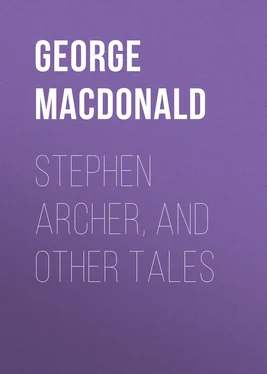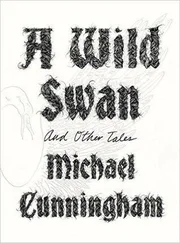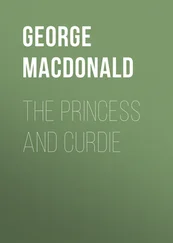George MacDonald - Stephen Archer, and Other Tales
Здесь есть возможность читать онлайн «George MacDonald - Stephen Archer, and Other Tales» — ознакомительный отрывок электронной книги совершенно бесплатно, а после прочтения отрывка купить полную версию. В некоторых случаях можно слушать аудио, скачать через торрент в формате fb2 и присутствует краткое содержание. Жанр: foreign_prose, foreign_religion, foreign_antique, на английском языке. Описание произведения, (предисловие) а так же отзывы посетителей доступны на портале библиотеки ЛибКат.
- Название:Stephen Archer, and Other Tales
- Автор:
- Жанр:
- Год:неизвестен
- ISBN:нет данных
- Рейтинг книги:4 / 5. Голосов: 1
-
Избранное:Добавить в избранное
- Отзывы:
-
Ваша оценка:
- 80
- 1
- 2
- 3
- 4
- 5
Stephen Archer, and Other Tales: краткое содержание, описание и аннотация
Предлагаем к чтению аннотацию, описание, краткое содержание или предисловие (зависит от того, что написал сам автор книги «Stephen Archer, and Other Tales»). Если вы не нашли необходимую информацию о книге — напишите в комментариях, мы постараемся отыскать её.
Stephen Archer, and Other Tales — читать онлайн ознакомительный отрывок
Ниже представлен текст книги, разбитый по страницам. Система сохранения места последней прочитанной страницы, позволяет с удобством читать онлайн бесплатно книгу «Stephen Archer, and Other Tales», без необходимости каждый раз заново искать на чём Вы остановились. Поставьте закладку, и сможете в любой момент перейти на страницу, на которой закончили чтение.
Интервал:
Закладка:
Alice only threw her chin in the air, and said almost threateningly,
"Am I to go for the month, sir?"
"I'll talk to your mistress about it," answered Mr. Greatorex, not at all sure that such an arrangement would be for his wife's comfort.
But the next day Mrs. Greatorex had a long talk with Alice, and the result was that on the following Monday she was to go home for a month, and then return for two months more at least. What Mr. Greatorex had said about the legacy, had had its effect, and, besides, her mistress had spoken to her with pleasure in her good fortune. About Sophy no one felt any anxiety: she was no trouble to any one, and the housemaid would see to her.
CHAPTER III
On the Sunday evening, Alice's lover, having heard, not from herself, but by a side wind, that she was going home the next day, made his appearance in Wimborne Square, somewhat perplexed—both at the move, and at her leaving him in ignorance of the same. He was a cabinet-maker in an honest shop in the neighbourhood, and in education, faculty, and general worth, considerably Alice's superior—a fact which had hitherto rather pleased her, but now gave zest to the change which she imagined had subverted their former relation. Full of the sense of her new superiority, she met him draped in an indescribable strangeness. John Jephson felt, at the very first word, as if her voice came from the other side of the English Channel. He wondered what he had done, or rather what Alice could imagine he had done or said, to put her in such tantrums.
"Alice, my dear," he said—for John was a man to go straight at the enemy, "what's amiss? What's come over you? You ain't altogether like your own self to-night! And here I find you're goin' away, and ne'er a word to me about it! What have I done?"
Alice's chin alone made reply. She waited the fitting moment, with splendour to astonish, and with grandeur to subdue her lover. To tell the sad truth, she was no longer sure that it would be well to encourage him on the old footing; was she not standing on tiptoe, her skirts in her hand, on the brink of the brook that parted serfdom from gentility, on the point of stepping daintily across, and leaving domestic slavery, red hands, caps, and obedience behind her? How then was she to marry a man that had black nails, and smelt of glue? It was incumbent on her at least, for propriety's sake, to render him at once aware that it was in condescension ineffable she took any notice of him.
"Alice, my girl!" began John again, in expostulatory tone.
"Miss Cox, if you please, John Jephson," interposed Alice.
"What on 'arth's come over you?" exclaimed John, with the first throb of rousing indignation. "But if you ain't your own self no more, why, Miss Cox be it. 'T seems to me 's if I warn't my own self no more—'s if I'd got into some un else, or 't least hedn't got my own ears on m' own head.—Never saw or heerd Alice like this afore!" he added, turning in gloomy bewilderment to the housemaid for a word of human sympathy.
The movement did not altogether please Alice, and she felt she must justify her behaviour.
"You see, John," she said, with dignity, keeping her back towards him, and pretending to dust the globe of a lamp, "there's things as no woman can help, and therefore as no man has no right to complain of them. It's not as if I'd gone an' done it, or changed myself, no more 'n if it 'ad took place in my cradle. What can I help it, if the world goes and changes itself? Am I to blame?—tell me that. It's not that. I make no complaint, but I tell you it ain't me, it's circumstances as is gone and changed theirselves, and bein' as circumstances is changed, things ain't the same as they was, and Miss is the properer term from you to me, John Jephson."
"Dang it if I know what you're a drivin' at, Alice!—Miss Cox!—and I beg yer pardon, miss, I'm sure.—Dang me if I do!"
"Don't swear, John Jephson—leastways before a lady. It's not proper."
"It seems to me, Miss Cox, as if the wind was a settin' from Bedlam, or may be Colney Hatch," said John, who was considered a humourist among his comrades. "I wouldn't take no liberties with a lady, Miss Cox; but if I might be so bold as to arst the joke of the thing—"
"Joke, indeed!" cried Alice. "Do you call a dead uncle and ten thousand pounds a joke?"
"God bless me!" said John. "You don't mean it, Alice?"
"I do mean it, and that you'll find, John Jephson. I'm goin' to bid you good-bye to-morrer."
"Whoy, Alice!" exclaimed honest John, aghast.
"It's truth I tell ye," said Alice.
"And for how long?" gasped John, fore-feeling illimitable misfortune.
"That depends," returned Alice, who did not care to lessen the effect of her communication by mentioning her promised return for a season. "—It ain't likely," she added, "as a heiress is a goin' to act the nuss-maid much longer."
"But Alice," said John, "you don't mean to say—it's not in your mind now—it can't be, Alice—you're only jokin' with me—"
"Indeed, and I'm not!" interjected Alice, with a sniff.
"I don't mean that way, you know. What I mean is, you don't mean as how this 'ere money—dang it all!—as how it's to be all over between you and me?—You can't mean that, Alice!" ended the poor fellow, with a choking in his throat.
It was very hard upon him! He must either look as if he wanted to share her money, or else as if he were ready to give her up.
"Arst yourself, John Jephson," answered Alice, "whether it's likely a young lady of fortun' would be keepin' company with a young man as didn't know how to take off his hat to her in the park?"
Alice did not above half mean what she said: she wished mainly to enhance her own importance. At the same time she did mean it half, and that would have been enough for Jephson. He rose, grievously wounded.
"Good-bye, Alice," he said, taking the hand she did not refuse. "Ye're throwin' from ye what all yer money won't buy."
She gave a scornful little laugh, and John walked out of the kitchen.
At the door he turned with one lingering look; but in Alice there was no sign of softening. She turned scornfully away, and no doubt enjoyed her triumph to the full.
The next morning she went away.
CHAPTER IV
Mr. Greatorex had ceased to regard the advent of Christmas with much interest. Naturally gifted with a strong religious tendency, he had, since his first marriage, taken, not to denial, but to the side of objection, spending much energy in contempt for the foolish opinions of others, a self-indulgence which does less than little to further the growth of one's own spirit in truth and righteousness. The only person who stands excused—I do not say justified—in so doing, is the man who, having been taught the same opinions, has found them a legion of adversaries barring his way to the truth. But having got rid of them for himself, it is, I suspect, worse than useless to attack them again, save as the ally of those who are fighting their way through the same ranks to the truth. Greatorex had been indulging his intellect at the expense of his heart. A man may have light in the brain and darkness in the heart. It were better to be an owl than a strong-eyed apteryx. He was on the path which naturally ends in blindness and unbelief. I fancy, if he had not been neglectful of his child, she would ere this time have relighted his Christmas-candles for him; but now his second disappointment in marriage had so dulled his heart that he had begun to regard life as a stupid affair, in which the most enviable fool was the man who could still expect to realize an ideal. He had set out on a false track altogether, but had not yet discovered that there had been an immoral element at work in his mistake.
For what right had he to desire the fashioning of any woman after his ideas? did not the angel of her eternal Ideal for ever behold the face of her Father in heaven? The best that can be said for him is, that, notwithstanding his disappointment and her faults, yea, notwithstanding his own faults, which were, with all his cultivation and strength of character, yet more serious than hers, he was still kind to her; yes, I may say for him, that, notwithstanding even her silliness, which is a sickening fault, and one which no supremacy of beauty can overshadow, he still loved her a little. Hence the care he showed for her in respect of the coming sorrow was genuine; it did not all belong to his desire for a son to whom he might be a father indeed—after his own fancies, however. Letty, on her part, was as full of expectation as the girl who has been promised a doll that can shut and open its eyes, and cry when it is pinched; her carelessness of its safe arrival came of ignorance and not indifference.
Читать дальшеИнтервал:
Закладка:
Похожие книги на «Stephen Archer, and Other Tales»
Представляем Вашему вниманию похожие книги на «Stephen Archer, and Other Tales» списком для выбора. Мы отобрали схожую по названию и смыслу литературу в надежде предоставить читателям больше вариантов отыскать новые, интересные, ещё непрочитанные произведения.
Обсуждение, отзывы о книге «Stephen Archer, and Other Tales» и просто собственные мнения читателей. Оставьте ваши комментарии, напишите, что Вы думаете о произведении, его смысле или главных героях. Укажите что конкретно понравилось, а что нет, и почему Вы так считаете.












